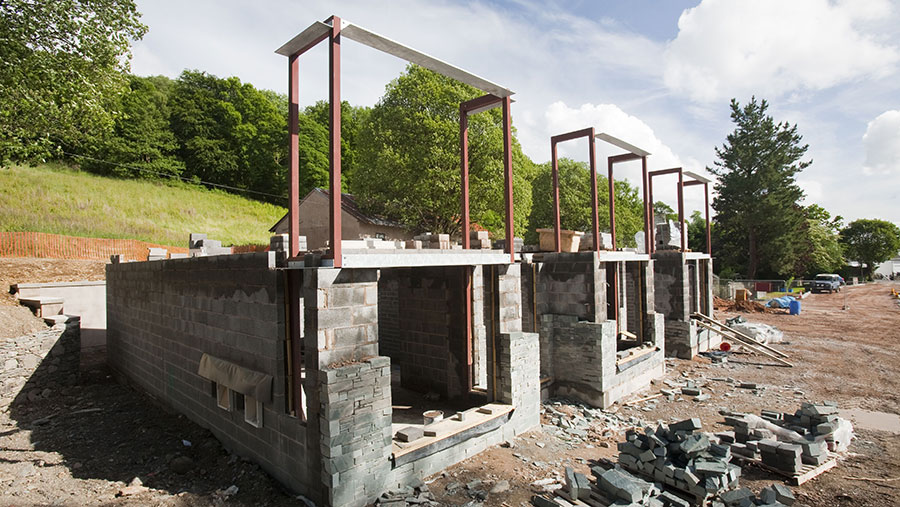FW Opinion: Have your say to benefit from planning reform
 © Global Warming Images/Shutterstock
© Global Warming Images/Shutterstock The government’s consultation on planning law reform proposes the biggest change to the system in 70 years, containing both threats and potential opportunities for farmers.
There is no doubt that current planning law is a hotchpotch of legislative change, overlaid with more change, since the Town and Country Planning Act 1947, which forms the basis of the system.
See also: Biggest planning shake-up in years needs farmer involvement
The government wants to reform this into a rules-based system, which would make it easier to build houses, schools and hospitals. Land would be zoned into areas for growth, renewal or protection, with an automatic grant of planning permission in most of those zones.
Local involvement should largely be at the zoning stage, helping to streamline the process, suggests the government.
About the author
 Suzie Horne
Suzie Horne
Business editor, Farmers Weekly
Contact:
E: suzie.horne@markallengroup.com
T: @FW_business
Read more articles by Suzie Horne
The words “farm”, “farming”, “agriculture” and “food” do not appear in the consultation document at all. The word “rural” appears just once, in passing.
Yet there is much at stake here for farming and the environment. Asset values and sales of farmland for development will be uppermost in the minds of many, sometimes for opposing reasons.
However, the potential effect on the whole rural economy must be considered.
Many farmers have had a costly and bruising experience of the planning system, especially over diversification projects. As a result of the coronavirus pandemic, rural homes and workplaces are expected to be in demand as more people move out of towns and cities, and fewer people commute.
This too has to be facilitated in the planning changes and the presumption in favour of farm diversification, far too often ignored by local authorities, must be upheld.
Within this type of development a certain amount of infrastructure is also required, especially broadband. We’ve been hearing for far too long about how the “forgotten 5%” will soon be reached. The latest version of this promise came just last week and still puts it five years away.
The proposed reforms also come at an extremely sensitive time, with the UK not only in recession, but also negotiating crucial trade agreements.
There are many who stand to benefit from a planning system that would zone farmland for swift development. Others will argue that recent years have seen too many acres of good farmland going under concrete.
There is a wide range of interests which argues that, considering 2.5m housing units have been granted permission in the past 10 years but only 1.5m have been built, it is not the planning system that is at fault.
The proposals require primary legislation and won’t necessarily have a smooth ride, but getting involved in the consultation is important.
Farmers Weekly has been asking readers to get involved in a lot lately – most recently the Environmental Land Management scheme and dairy contacts consultations. The level and pace of change is startling and sometimes disturbing, but there is a real danger that the drive to boost economic activity could result in some poor decisions and flawed legislation.
The promise of a smoother, swifter planning system might ring very hollow in a few years’ time if farmers don’t have their say now.
If anyone is in doubt about the intention or extent of the reforms, then the prime minister’s words that the “time has come to… tear it down and start again” in the foreword to the consultation should be enough to dispel that misconception.
